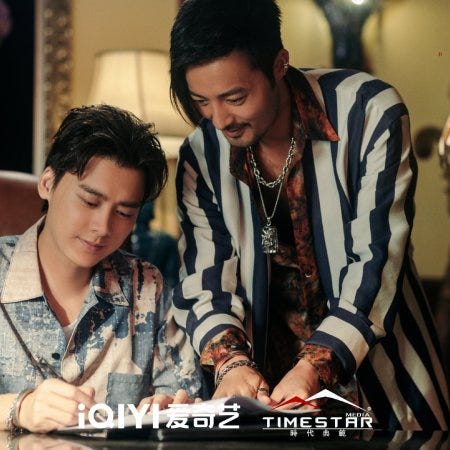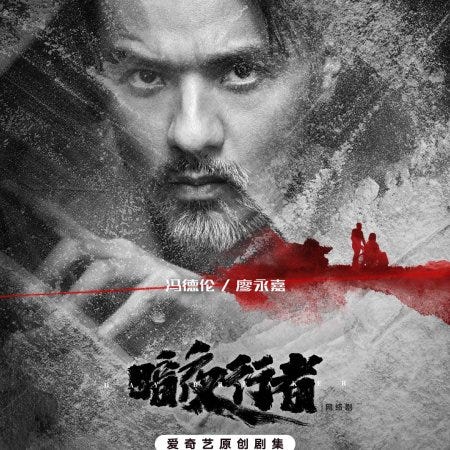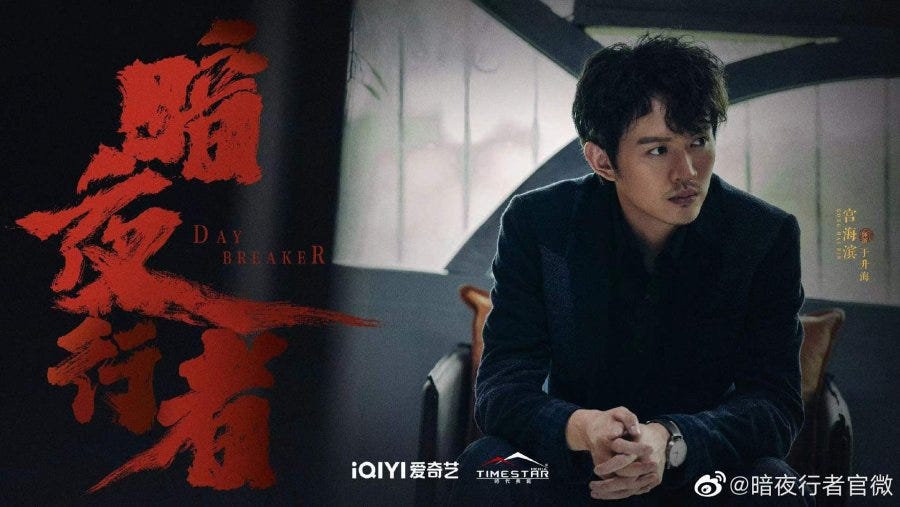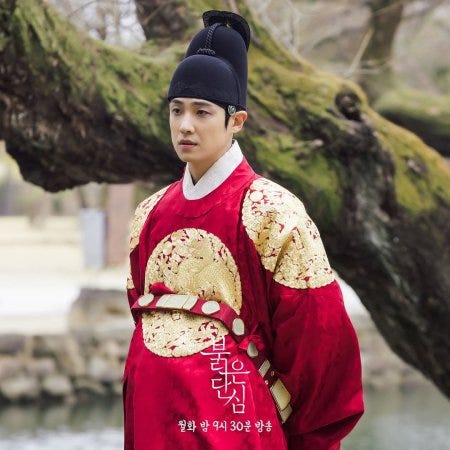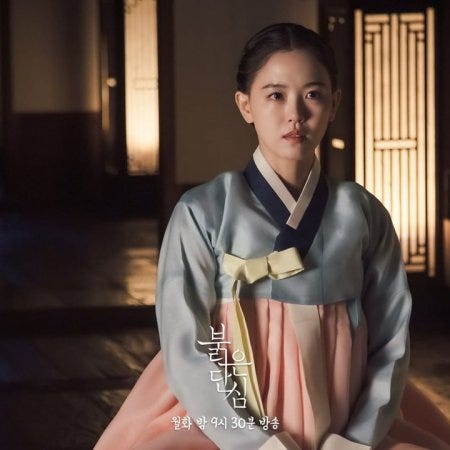Day Breaker (2022)
While this drama gives the appearance of being a convoluted ensemble of vested interests and hidden motivations, at its heart is a run-of-the-mill morality tale about the slippery slope descent into evil. The deliberate use of flashbacks and the continuously shifting points of view creates the illusion that this is a far more complex story than it is. In fact, when boiled to its essence, it is rather a straightforward character driven tale of woe. This is made more obvious by the show’s ending where the youngest member of the cast poses the question to her father — “What sort of world would it be if there were no drugs?”. In a bid to answer that question, the show’s protagonist casts his imagination over to an alternate universe where enemies amicably sit across tables sipping tea and playing chess as friends. Heroism is no cynical ploy and trust is genuinely possible. No one would disagree that a world without drugs could be a far less violent one. This is however Luo Xiang’s utopian vision of a drug-free where former foes hold hands and sing kumbaya in harmony. Like all utopias, it’s a pipe dream that assumes that a radical change of circumstances would lead to a change of the heart. Indeed, history proves that the opposite is true. Solzhenitsyn’s famous line about the line that separating good and evil passes through the heart reverberates everywhere here.
It’s a completely unnecessary (if schmaltzy) appendage to the finale because the drama itself makes a credible case for Solzhenitsyn’s thesis through much of the storytelling. Drugs are almost irrelevant as any kind of rationale for the insidiousness of evil. Barely anyone who trades in it, is also a consumer of it. Instead it is a commodity (as well as a powerful weapon) and almost always a means to an end. It’s mostly about amassing power, sometimes about control and certainly always about greed.
Almost everything about this story begins 5 years earlier — a disastrous attempt by the police to bring down the most powerful drug lords in the business. Mistakes were made and men under the pressure of the moment crossed lines that should never have been crossed — choices once committed to would haunt them forever. Drug trafficking is the mechanism that binds them all together in sordid fashion but it’s the corruptible human soul gripped by fear that destroys even the best of men.
It is through the lenses of three men that the pivotal event and what ensues is constantly being translated or interpreted . First of all there’s the show’s protagonist Luo Xiang (Li Yifei) the idealistic cop who is in it for the long haul. He goes undercover for an extended period of time and remains largely untouched by the vast array of temptations on offer. Despite all the trappings of power and wealth on display, Luo Xiang is unmoved and soldiers on in his quest to rid Hua City of the dregs. The darkness though surrounds him, never overwhelms him. He is steadfastly single-minded about his mission to the point of denying himself a chance to rekindle a romance from the past. He pays a high price for his dedication but he never loses his soul to achieve his ends. He is at the tip of the spear but manages to avoid impaling on it.
The other personality that dominates the story is Liao Yongjia (Stephen Fung) whose intentions are seldom clear. A highly regarded criminal investigator, Liao Yongjia is a man with far too many secrets and hidden agendas to be completely trustworthy. He might see himself as the man with the plan pulling the strings but there are forces outside his control for which he is compelled to respond to at any time. All of that inadvertently reveal him to be a far more ruthless operator than meets the eye. 5 years ago was a catastrophe for a man who prided himself on being a diligent cop.
Yu Shenghai (Gong Haibin), is yet another police officer whose conduct is dubious to say the least. At some level the show paints him as victim as well as a perpetrator. The audience’s perspective on him shifts continuously over the course of the story as the unseen forces of evil persistently know which buttons to push. His road is one paved with many so-called good intentions but it can only lead to one destination. Guilt and shame accompany him as he wrestles with the puppet masters who tug at his strings while he tries desperately to sever all ties that weigh him down.
The intersection of these three paths is what makes the entire show more than just a police procedural and a shoot-up fest. The rogues gallery is a long one indeed and not unexpectedly there are people from both sides of the law that find their picture there. Public persona is just that and no guarantee that the man or woman who dons the uniform will uphold the law if it doesn’t suit. In fact, the uniform might just be the cover needed to trespass the law with impunity and the means to get away with murder most foul.
There's little doubting the calibre of the cast in general. There's no moustache twirling in sight. Even the why-is-there-a-cute-kid-here holds her own when the director is deigned to trot her out. Maybe it's about ramping up the stakes. Maybe it's the odd reprieve from all the plotting and scheming. Maybe it's the reminder that Luo Xiang needs to stay on the straight and narrow if he wants to build that better world he dreams of when he's not dodging bullets and making deals with the unsavoury types.
Also posted in My Drama List here.
Red Heart (2022)
I did a stop start with this one and I’ve finally made my way to Episode 7 at the time of writing. The cinematography is undoubtedly to die for — I am reminded of Tomas Alfredson's Tinker Tailor Soldier Spy in that regard. Long to medium shots, lingering extreme close-ups (especially of the eyes) and over-the-shoulder camera work. There’s no doubt that the visual storytelling here is stunning and thankfully, absorbing as well. For me this is the first sageuk in a very long time (possibly since Nokdu Flower) that has gravitas, genuine historical chops right from the start. The stakes are high and the characters are fully fleshed out rather than standard K drama caricatures. The entire experience is immersive. Credit must be given to the brilliantly cast actors and writer for getting this across. Nuance can make and break the audience’s perception of a character. Moreover in a politically charged drama such as this, nuance is absolutely everything.
As yet there are no villains in this, only sides. On the one side, there is the king, Lee Tae (Lee Joon) who is in a bold bid to wrest power out of the hands of the left councillor, Park Gye-won (Jang Hyuk) who represents the other side of the argument — the king should not and cannot have absolute power even in a monarchical system such as this. Tyrants come in many forms but they all have one thing in common: Unbridled they rule with an iron fist and mayhem ensues. Even while the buck stops with the king, he cannot be answerable to no one and believe himself to be one among the gods.
At this point I remain unconvinced that Park Gye-won is the malevolent villain that Lee Tae and others perceive him to be. While he is ruthless and will do whatever it takes to achieve his own ends, I have little doubt that he’s a patriot at heart. He witnessed firsthand the despotic rule of Lee Tae’s grandfather and made it his business to unseat him but for some reason never felt the need to usurp the throne. What’s also fascinating are the voice overs from his end where he’s observing the young king as he executes his moves in the game he has devised. Though it be early days for me, I am inclined to think that he is playing the role of agent provocateur to test and maybe even to train the fledgling monarch. In that regard I find him a sympathetic figure. Indeed no single person should be handed that much power without checks and balances in place.
Also of note is Park Gye-won’s relationship with the Queen Dowager and it appears too that they’re much closer than we’re first led to believe. The fact that he takes her into his confidence and she calls on him at the first sign of trouble is certainly proof of that. I am now also certain that he installed her as an unwavering ally in the palace to curb the powers of the king who may or may not be a second incarnation of his grandfather.
Of course choosing Yu Jeong to be the next Queen could be a double-edged sword. In part Park Gye-won made that move in order to cause an estrangement between the Minister for War, Cho Won-pyeo and the king but indeed as he himself as acknowledged Yu Jeong is no fool so she’s a veritable wild card that may have plenty of ideas of her own. It may be that she will not sing from his song sheet once she has a foothold in the palace.
As someone who much prefers historical drama to feel historical, this show is off to a promising start. It plods a little but with the quality of acting that’s on offer, it’s an opportunity for more contemplation while admiring the scenery. After all I am someone who cut their television teeth on British adaptations many many years ago.



